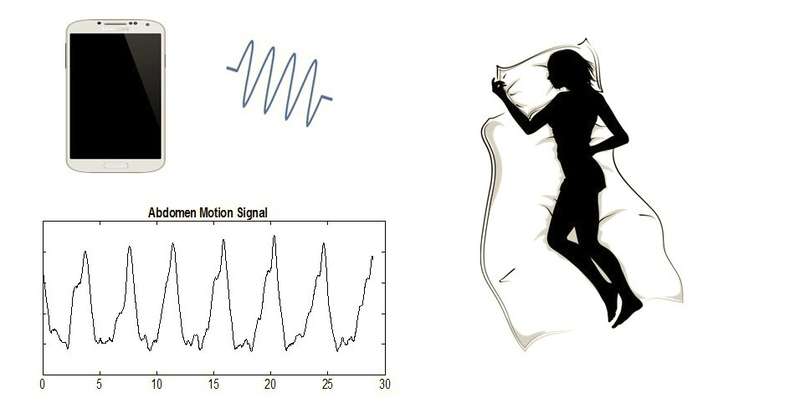Sleep Apnea? There May Be an App for That
 Millions of Americans are short of breath while they sleep. Approximately one in 13 in the U.S. have sleep apnea. But to diagnose the disease involves an overnight hospital stay and a sleep study that costs thousands of dollars. A group of researchers at the University of Washington now say they have an app for that – a cheap alternative on a smartphone that could be available widely in a year or two to diagnose the disorder.
Millions of Americans are short of breath while they sleep. Approximately one in 13 in the U.S. have sleep apnea. But to diagnose the disease involves an overnight hospital stay and a sleep study that costs thousands of dollars. A group of researchers at the University of Washington now say they have an app for that – a cheap alternative on a smartphone that could be available widely in a year or two to diagnose the disorder.
The ApneaApp turns an Android smartphone into an active sonar system that tracks small changes in a person’s breathing while they sleep, the developers said. The sound waves bounce off a sleeping person’s body, similar to the way that bats navigate, they added. The specific sound frequencies used mean it’s easy to differentiate between another person sleeping in the same bed, and also ambient noise.
The clinical study of the app tested 37 people, using a Samsung Galaxy S4 smartphone on a corner of the bed. Over 300 hours of testing, the app tracked the breathing of the patients at 95 to 99 percent accuracy, they said. Overall, the app correctly classified 32 of the 37 patients – and four of the remaining five were on the boundary between apnea and mild apnea, which requires a subjective judgment call made by doctors, the researchers said.
The researchers have yet to seek approval from the Food and Drug Administration – but are evaluating that possibility. The new technology, they said, could help millions get a better night’s sleep.
“Right now we don’t have enough sleep clinics, sleep laboratories and sleep specialists in the country to address all the sleep apnea that is out there,” said Nathaniel Watson, the professor of neurology and co-director of the University of Washington Sleep Center. “These initial results are impressive and suggest that ApneaApp has the potential to be a simple, non-invasive way for the average person to identify sleep apnea events at home and hopefully seek treatment.”
The clinical study will be presented at the MobiSys conference in Italy next month. The findings will also appear at the Associated Professional Sleep Societies meeting in Seattle in June, the researchers said.




